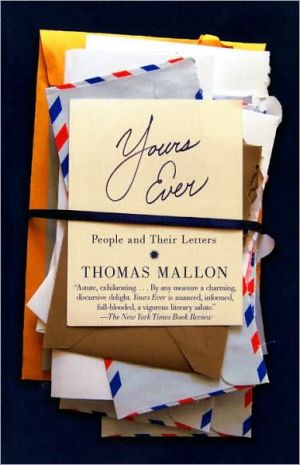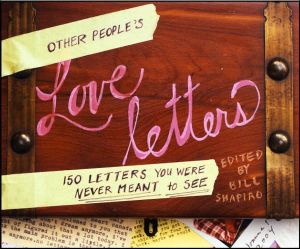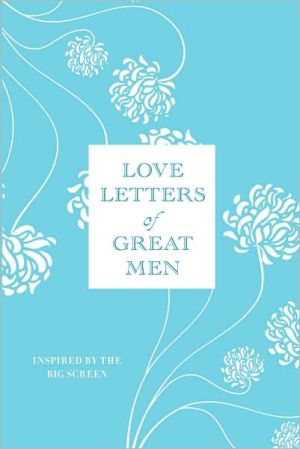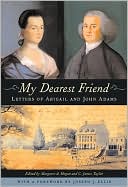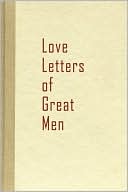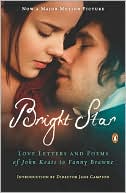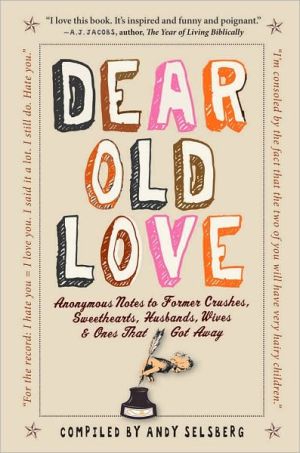Yours Ever: People and Their Letters
A delightful investigation of the art of letter writing, Yours Ever explores masterpieces dispatched through the ages by messenger, postal service, and e-mail.\ Here are Madame de Sévigné's devastatingly sharp reports from the French court, F. Scott Fitzgerald's tormented advice to his young daughter, the casually brilliant musings of Flannery O'Connor, the lustful boastings of Lord Byron, and the prison cries of Sacco and Vanzetti, all accompanied by Thomas Mallon's own insightful...
Search in google:
A delightful investigation of the art of letter writing, Yours Ever explores masterpieces dispatched through the ages by messenger, postal service, and BlackBerry. Here are Madame de Sévigné’s devastatingly sharp reports from the French court, F. Scott Fitzgerald’s tormented advice to his young daughter, the casually brilliant musings of Flannery O’Connor, the lustful boastings of Lord Byron, and the prison cries of Sacco and Vanzetti, all accompanied by Thomas Mallon’s own insightful commentary. From battlefield confessions to suicide notes, fan letters to hate mail, Yours Ever is an exuberant reintroduction to a vast and entertaining literature—a book that will help to revive, in the digital age, this glorious lost art.The Barnes & Noble ReviewIt was brought home to me in graduate school that Newton's Third Law, which otherwise so elegantly deals with reciprocal forces, fails to account for mail: the amount of pleasure a letter brings to its recipient induces more than an equal and opposite amount of guilt as it remains unanswered. Or is it just my amour propre as a terrible correspondent that makes me want to universalize my failings? I have no idea how large the class of sheepish dilatory letter writers is, but I do know that I've found some companions and some spurs to activity in Thomas Mallon's book on letters. Originally planned as a companion to A Book of One's Own, his anthology of diaries, it has appeared a trifle later than he had expected: "It embarrasses me to admit that I began writing this book when a first-class stamp cost twenty-nine cents."
Introduction\ \ It embarrasses me to admit that I began writing this book when a first-class stamp cost twenty-nine cents. Well, here we are, the price half again as much and I a third again as old, and my excuses no better than what one usually offers when finally answering a letter that’s been under the paperweight for ages longer than one ever meant it to be.\ But a person can’t adequately procrastinate without at least one semi-valid rationalization, and so here’s mine: if this book had come out, as it was supposed to, around 1997, it would have appeared just as e-mail was reaching Everyman and beginning to kill, or revive (there are both schools of thought), the practice and art of letter writing. Whichever the case, the book would have come ashore just as a sea change was making the waters even more interesting.\ Letters had always defeated distance, but with the coming of e-mail, time seemed to be vanquished as well. It’s worth spending a minute or two pondering the physics of the thing, which interested Charles Lamb even early in the nineteenth century. Domestic mail was already a marvel—“One drops a packet at Lombard Street, and in twenty-four hours a friend in Cumberland gets it as fresh as if it came in ice”*—but in his essay “Distant Correspondents” (1822), Lamb seemed to regard remoteness and delay as inherent, vexing elements of the whole epistolary enterprise. Considering the gap between the dispatch and receipt of a far-traveling letter, he wrote: “Not only does truth, in these long intervals, unessence herself, but (what is harder) one cannot venture a crude fiction, for the fear that it may ripen into a truth upon the voyage.” In Lamb’s view, sentiment, unlike revenge, “requires to be served up hot . . . If it have time to cool, it is the most tasteless of all cold meats.” He even imagines poor sentiment being “hoisted into a ship . . . pawed about and handled between the rude jests of tarpaulin ruffians.”\ And yet, once the sentiment-carrying letter arrives, Lamb will be “chatting” to his distant correspondent “as familiarly as when we used to exchange good-morrows out of our old contiguous windows.” The letter will have reconnected them, however imperfectly, by the slenderest and most improbable of threads. With e-mail and its even realer-time progeny, the IM and the text message and the Tweet, we get to ask simply “how have you been?”—in, that is, the twelve minutes since we were last in touch.\ In a history of the mails that he published in the frantic year 1928, Alvin F. Harlow proudly insisted that “the history of postal service has been the history of civilization,” and he debunked the idea that Queen Atossa, daughter of Cyrus the Great, wrote the first letter, from Persia, sometime in the sixth century B.C. Mr. Harlow felt certain that these civilizing instruments had been on the road, if not the wing, “hundreds of years” before that. Setting aside the question of precedence, we do know that Greeks had their fleet-footed hemerodromes and the Romans their Cursus publicus for the delivery of communications between one part of the government and another. Couriers and messengers made the Dark Ages a little less so, before Louis XI established what Mr. Harlow calls “the first royal, regular message service” in the fifteenth century, which allowed Henry VIII to imitate and expand the institution forty years later, across the Channel. Not long after that, private carriers began servicing non-royal folk, bequeathing us the phrase “post haste”— a shortening of the injunction (“Haste, Post, haste!”) that customers sometimes inscribed on their dispatches.\ During the seventeenth century, government delivery service appeared in England, along with postmarks and complaints from messenger boys against the unfair competition. (One thinks of how the lethal bicycle messengers of 1980s Manhattan cursed the faxes that suddenly ran them off the road.) The mail coach transported England into its golden epistolary age, a time of such confidence in the quality of letters that, as Daniel Pool points out in his book about nineteenth-century British life, the recipient paid the postage. That changed with the advent of the penny post, around 1840, by which time envelopes had replaced sealing wax.\ In America, as the Pony Express began racing alongside train tracks, speed of delivery came to trump all else, though the cozy convenience of home delivery did not arrive in most places until after the Civil War. Here, where I live in Washington D.C., a walk down F Street will take you past the building that served as the city’s post office in Lincoln’s time; the sidewalk that’s now filled with tourists—the building has become a hotel—once teemed with wives and sweethearts and women who didn’t yet know they were widows, all of them come to collect the mail they hoped was arriving from the battlefield.\ Anthony Trollope arrived in the capital just a few years later— “in June the musquito of Washington is as a roaring lion”—to negotiate a postal treaty between the United States and England. (The Victorian appetite for work being what it was, writing several dozen books didn’t mean Trollope couldn’t hold a full-time government job, too.) According to R. H. Super, the treaty “settled almost nothing.” Trollope’s real postal success would remain more domestic than international: his introduction of the red pillar box that allowed for easy mailing of the letters upon which events in his novels so often turn.\ More than one fine literary stylist has found e-mail actually to be more in keeping with letter writing’s early vitality than were the stuffy epistolary conventions that grew up over later centuries. Reflecting on her correspondence with a friend in France, Phyllis Rose writes, in The Year of Reading Proust:“Like a collagen cream or estrogen which restores to the skin its lost elasticity, e-mail has given me back the spontaneity I had lost to the laziness of age. I can receive Jack’s newsletter at noon, read it after dinner, write him a note, and it will pop up on his computer screen when he arrives at work the next morning in Paris.”\ *More or less foreseeing the telephone, Lamb writes that posting a letter is like “whispering through a long trumpet.”
Introduction ONE Absence TWO Friendship THREE Advice FOUR Complaint FIVE Love SIX Spirit SEVEN Confession EIGHT War NINE Prison Selected Bibliography Index
\ Carolyn SeeIf Thomas Mallon—when it comes to this collection of letters, at least—were a blanket, he'd be a crazy quilt. If he were a toy, he'd be a whirligig. Because, in choosing to write a book about "people and their letters," the author comes up against the fact that there are an awful lot of letters flying around Western civilization and a daunting number of people. Know this going into Yours Ever: There's no pattern at all here…This isn't to say that [it] shouldn't be read—it's crammed with interesting snippets from all over the place…[and] as full of learning as a candy bar chock-full of nuts.\ —The Washington Post\ \ \ \ \ Stacy Schiff[Mallon's] chapter titles—"Absence," "Friendship," "Advice," "Complaint," for starters—offer a virtual tour of the human condition. He concedes that his categories are fluid and arbitrary, as indeed they are…Similarly, Mallon feels free to depart from the beaten track. His old friends and the obvious suspects are all here—Flaubert and Sand, Freud and Jung, the Mitfords in all their ferocious fluency—but so are plenty of unknowns…the result is by any measure a charming, discursive delight. Yours Ever is nuanced, informed, full-blooded, a vigorous literary salute. Mallon offers up his text as one that "bows down to its bibliography, one that presents itself as a kind of long cover letter to the cornucopia of titles listed back there," a line, I might add, that could serve as a fine definition of belles-lettres.\ —The New York Times\ \ \ Publishers WeeklyThis companion volume to prolific Mallon's 1984 study of diaries, A Book of One's Own, surveys several epistolary subgenres, including friendship, advice, complaint, love, confession, war-zone dispatch and pleas from prison. A 25-year correspondence between Mary McCarthy and Hannah Arendt pleasurably mixes world politics and personal foibles, musings about the Eichmann trial with an unwanted pregnancy and literary gossip. Henry Miller bullied his patient publisher James Laughlin for 30 years (“Why should I compromise?... to please you?”); Florence Nightingale's angry, agitated letters from the Crimean War show a respect for the suffering soldier and a contempt for complaining nurses; E.M. Forster confides to a friend his homosexual initiation at age 37 by an Egyptian tram conductor; and Winston and Clementine Churchill's long correspondence blends patriotism, ambition and shared tenacity. They stand in marked contrast to the duke and duchess of Windsor's baby talk and self-pity. This smart, witty and lively account with excerpts of a not-yet-extinct literary genre will whet our appetites for published collections of letters—a selected bibliography is included—while motivating us to put pen to paper to rediscover a satisfying means of communication. (Nov. 10)\ \ \ \ \ Library JournalDesiring a companion volume to his study of diaries, A Book of One's Own, Mallon (Fellow Travelers; Henry and Clara) offers samples of personal correspondence from ancient Persia to email, which he believes will revive the lost art of letter writing. Nevertheless, most excerpts are from traditional handwritten postings. Topics range from absence to love, confession to prison. Each chapter heading contains a blanket term (e.g., "Absence," "Spirit," "War") under which Mallon tucks in the thoughts of many well-known writers, statesmen, and social advocates. Some epistles reveal not-so-noteworthy character traits: William Faulkner's racism, V.S. Naipaul's misogyny, and Neal Cassady's self-destructive path. On the other hand, Lincoln, while altruistic, proves himself primarily pragmatic; Virginia Woolf radiates as a gentle, life-affirming lover; political dissident Wei Jingsheng's mocking pleas help liberate him from Chinese prison; and Oscar Wilde's rant against publishers of personal letters adds an ironic twist. VERDICT An engaging if slightly disjointed exposé of the inner musings of some of the world's best thinkers; of interest to readers who favor biography.—Nedra Crowe-Evers, Sonoma Cty. Lib., CA\ \ \ \ \ The Barnes & Noble ReviewIt was brought home to me in graduate school that Newton's Third Law, which otherwise so elegantly deals with reciprocal forces, fails to account for mail: the amount of pleasure a letter brings to its recipient induces more than an equal and opposite amount of guilt as it remains unanswered. Or is it just my amour propre as a terrible correspondent that makes me want to universalize my failings? I have no idea how large the class of sheepish dilatory letter writers is, but I do know that I've found some companions and some spurs to activity in Thomas Mallon's book on letters. Originally planned as a companion to A Book of One's Own, his anthology of diaries, it has appeared a trifle later than he had expected: "It embarrasses me to admit that I began writing this book when a first-class stamp cost twenty-nine cents." \ Of course, there's always an excuse. As Mallon reports, Tennessee Williams found that "when work goes well, he's too tired to answer letters; when it doesn't, he's too depressed." The middle-aged John Milton seemed to face up to his faults as a correspondent by claiming to be "by nature slow and lazy to write." One gulps. But as a teenager Milton was able to rustle up this rhetorical rhodomontade:\ [I]t is in truth my fear that, as soon as I should meditate a letter to be sent you, it should suddenly come into my mind by what an interval of earth you are distant from me, and so the grief of your absence, already nearly lulled, should grow fresh, and break up my sweet dream.\ Mallon organizes his material thematically: absence, advice, complaint, confession, war, prison, and so on. He takes up Dear John letters, suicide notes, biblical epistles, and fan mail both swooning and threatening. There is no chapter on excuses for failing to respond to letters in a timely manner. I would have liked one, if only to give Mallon the excuse to cite the extreme cases of Malcolm Bradbury's Unsent Letters or, even funnier, Algernon in Oscar Wilde's The Importance of Being Earnest -- Cicely points out to Algy that because he was entirely unaware of her existence during their engagement, she was forced to write his love letters to her herself. Mallon has, however, limited himself to the world of real people. Wilde makes an appearance in the prison chapter, where his most famous letter -- the 50,000-word "De Profundis" -- is overshadowed by the begging letters he wrote between his release and his death three years later. They were composed of absinthe and wry: "The Cloister or the Café -- there is my future. I tried the Hearth, but it was a failure."\ What does the ideal letter consist of? Mallon thinks "a letter should feel like its own enclosure, the bright on-purpose prose dancing out of the envelope like photos or cash." That doesn't mean the tone or subject matter is necessarily cheerful. Vexation, indignation, and anger spice things up. There's pleasure to be had from letters to the newspaper written by the stock Blimp "Disgusted in Tunbridge Wells." But the sui generis Graham Greene, too, quite enjoyed sending off his "cracked pots to the papers." The crabbiness doesn't even have to be sincere, as Mallon points out when he considers the letters of H. L. Mencken: "[O]ne may have trouble differentiating true fits of spleen from that organ's mere pirouettes, rhetorical movements designed to delight both writer and audience."\ Such consciousness of playing upon the epistolary stage isn't surprising given how many of Mallon's subjects are writers: Emily Dickinson, Mme. de Sévigné, Mark Twain, Flaubert, Mary McCarthy, Hannah Arendt, Whittaker Chambers, Maxwell Perkins, the "bleakly exhilarating" Philip Larkin, Gerard Manley Hopkins, Wilfred Owen...Mallon reads Keats's letters as "conscious entertainments" -- quite rightly, as Keats knew that his letters would be read out loud and circulated. The sense of audience doesn't necessarily hide the writer, though -- Jessica Mitford's "ideological worst and self-mocking best are both on display, in annoyingly peaceful coexistence." But letters can also reveal writers stripped from their familiar guises: in the suicide note Virginia Woolf left for Leonard, she "addresses her husband...in the kind of simple declarative sentences she'd practically banished from the English novel."\ Some of the book's best moments come from people I've never heard of. Elinore Stewart, raised in the Oklahoma Indian Territory and living on a ranch two miles from the post office in Burnt Fork, Wyoming, rises right off the page: "I know this is an inexcusably long letter, but it is snowing so hard and you know how I like to talk." She fills her letters with sharp descriptions and allusions to her reading -- Thackeray and Dickens. The World War II correspondence between Mirren Barford and Jock Lewes painfully descends from the high-mindedness of sheltered youth.\ Mallon's commentary isn't obtrusive, but the book is obviously shaped by his taste. That includes a taste for puns: About the spat between Vladimir Nabokov and Edmund Wilson over Russian translations, he says it's a case of "when Pushkin came to shove." Mallon is more patient with 20 years' worth of James Agee's self-regard than I am. His selection of F. O. Matthieson's letters gave life to what was a famous but shadowy presence in my mind. He loves Charles Lamb so much he begins and ends with him and even quotes the same (marvelous) sentence twice in praise of his spontaneity on the page, especially the "excitement of his feelings by food": "God bless me, here are the birds, smoking hot!"\ Given email, Facebook, and Twitter, whither the letter? Mallon seems to think that reports of its death are greatly exaggerated. After all the telephone didn't kill it off, even though, as Tennessee Williams pointed out in a letter, "No doubt we'll be talking before you get this." The ether is cheap, and that leads to certain abuses. After he'd been fired as postmaster for throwing away the mail, Faulkner groused, "I reckon I'll be at the beck and call of folks with money all my life, but thank God I won't ever again have to be at the beck and call of every son of a bitch who's got two cents to buy a stamp."\ Slowness gathers up beauty, says the poet, so I buy Forever stamps. Thanks to Mallon's book, I learned about the Letter Exchange -- an epistolary club and magazine for snail mail fans. It gives me faith in the future to know there's a whole universe of correspondents not to write to. --Alexandra Mullen\ Alexandra Mullen left a life as an academic in Victorian literature to return to her roots as a general reader. She now writes for The Hudson Review (where she is also an Advisory Editor), The New Criterion, and The Wall Street Journal.\ \ \
